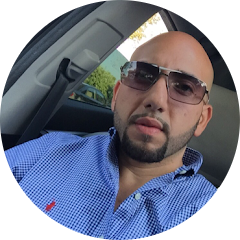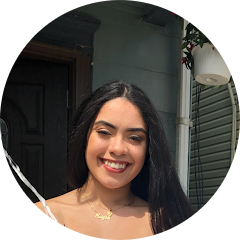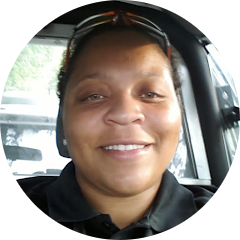Bobtail Truck Insurance (Non-Trucking Liability)
Need to get a Bobtail Insurance quote? We’re here to help.
NITIC has over 30 years of experience in providing Bobtail Insurance solutions to our nationwide clients. With hundreds of 5-star Google reviews and an A+ rating with the BBB, NITIC is your trusted Bobtail Insurance provider for fast, reliable quotes. Our exceptional customer support, affordable truck insurance, fastest claim settlement policy, and quality service distinguish us from other commercial tow truck insurance policy providers.
Receive a customized commercial Bobtail Insurance quote today!
Save Time and Money With a Bobtail Insurance Quote from NITIC!
Get the right commercial truck insurance that meets your needs.
Bobtail Insurance Coverage (also called “Non-Trucking Liability Insurance”) protects the owner-operator against physical damage and auto liability to a third party while operating a trailer or hauling a trailer loaded with goods.
Most states require NTL to be signed by the transport provider with whom a lease agreement has been signed. This coverage closes a possible hole for trailers used for purposes other than business and aids in defending the primary liability policy.
Bobtail vs Non-Trucking Liability
The Bobtail Insurance policy provides coverage for trucks operated without trailers, commonly known as bobtailing. Regardless of whether the truck is being dispatched, bobtail insurance covers the vehicle only when it is not connected to a trailer.
Non-Trucking Liability Insurance, in the event of an accident involving a non-trucking vehicle while the driver/truck is off duty, will cover property damage or bodily injury. The coverage comes in the form of an endorsement on business insurance and is applicable with or without a trailer.
Bobtail Insurance is the policy for you if:
- You are not pulling a load or any trailer.
- You are driving in between loads.
- Or after dropping off a load and trailer, you are on your way home.
Bobtail Insurance is NOT the policy for you if:
- You are pulling a load or any trailer. Even if the trailer is empty, if you are in an accident, there could not be any protection.
Who Needs Non-Trucking Liability Coverage?
No matter when you drive your truck, you need insurance. Your trucker limited liability insurance only provides protection if you are hauling a trailer or driving a truck under someone else’s trucking authority; you need separate coverage for all other driving circumstances.
Non-Trucking Liability Insurance is the policy for you if:
- Driving a truck without a trailer while under someone else 's trucking authority.
- Want to safeguard yourself from costly legal fees or out-of-pocket expenses, in the event of an accident.
- Moving after loading/unloading to a proximity safe location to rest.
- Using your truck for non-commercial purposes.
Non-Trucking Liability Insurance is NOT the policy for you if:
- You want truck insurance for the cargo you transport.
What Does Bobtail Insurance Cover?
Bobtail insurance covers expenses related to bodily injury or property damage to a third party. In order for coverage under this policy to take effect, you must not be using your truck for commercial reasons.
Bobtail insurance typically covers:
Liability Protection: It provides liability coverage for bodily injury and property damage that the trucker may cause while operating the truck without a trailer.
Legal Expenses: It may cover legal expenses if the trucker is sued as a result of an accident while bobtailing.
It’s important to note that bobtail insurance is different from primary liability insurance, which covers the trucker while they are under dispatch and hauling a load. Bobtail insurance fills the coverage gap when the trucker is driving the truck without a trailer.
Truckers often purchase bobtail insurance to ensure they have continuous liability coverage, even when they are not actively working for a motor carrier. This type of insurance is especially relevant for owner-operators or independent truck drivers who may use their trucks for personal reasons when not actively hauling freight.
Additionally, we can provide coverage for returns after pickups or departures from the motor carrier depending on the current situation.
What about the policyholder's damages?
Your bobtail policy covers the third-party expenses, but what about your physical damage policy?
If you’re an owner-operator operating under lease to a motor carrier that covers your primary liability, you’ll probably have to carry physical damage insurance to protect the truck if the motor carrier does not cover it.
So, in the event of an accident due to collision, overturn, theft, vandalism, or natural calamity, the company will cover damages to your truck, if you keep physical damage on your policy.
Bobtail Insurance: What Does It Cost?
- Sample Price Quote for Bobtail Insurance (1 Truck, 1 Driver Operation located in New Jersey)
- Downpayment: $209.00
- Monthly Payment: $47.00
Sample Price Quote for Bobtail/Non-Trucking Liability and Physical Damage Insurance (1 Truck, 1 Driver Operation located in New Jersey)
- Total Annual Premium: $3,262
- Down Payment: $637.00
- 10 Monthly Payments of $262.50
Factors that can impact your bobtail insurance premium cost
We can assist you if you’re looking for auto liability coverage for an owner/operator. We will help you in calculating the entire cost of your bobtail insurance after reviewing the following factors:
- Age and Driving Past Record
- Vehicle Type and Model
- Number of Years you hold a CDL (Commercial Driver License)
- Leasing Agreement
- How Frequently you Drive for Personal Reasons
- Credit Score
- Limit requests
Bobtail Coverage: What Are The Limits?
- $1 million in combined single limits,
- $50,000 in uninsured/underinsured motorist coverage per person,
- and $100,000 in uninsured/underinsured motorist coverage per accident.
Bobtail Insurance vs Deadhead Insurance
Bobtail insurance and deadhead insurance are two critical types of coverage for truck drivers, but they serve different purposes. Understanding the difference between the two is essential for ensuring you have the right protection for your commercial truck.
Bobtail Insurance covers a truck when it is being operated without a trailer, regardless of whether the driver is under dispatch or not. This insurance is specifically designed to protect the truck driver in scenarios like driving home after a delivery, traveling between jobs, or heading to a maintenance facility. Essentially, it provides liability coverage for accidents that occur when the truck is “bobtailing,” or running without a trailer attached.
Deadhead Insurance, on the other hand, covers the truck when it is driving with an empty trailer. The term “deadheading” refers to the situation where a truck is returning empty after delivering a load or heading to pick up a new load. This insurance ensures that the truck and driver are protected from liability claims during these transit periods.
In summary, while bobtail insurance covers driving without a trailer, deadhead insurance covers driving with an empty trailer. Both types of insurance are crucial for providing comprehensive protection in different phases of trucking operations.
What is the Difference Between Non-Trucking Liability and Bobtail insurance?
At NITIC, one of the most common questions we get from truckers—especially new owner-operators—is the difference between Non-Trucking Liability (NTL) and Bobtail Insurance. While the two are closely related and often confused, they serve distinct purposes and apply in different situations.
Non-Trucking Liability Insurance provides coverage when you’re using your truck for personal use and not under dispatch. For example, if you’re driving your truck to the grocery store, visiting family, or heading to a non-work-related appointment, NTL covers any bodily injury or property damage you may cause during those personal-use trips. It’s important to note that NTL only applies when you’re truly off the clock and not engaging in any business-related activities.
Bobtail Insurance, on the other hand, covers your truck when you’re driving without a trailer—regardless of whether you’re on personal time or traveling between loads. For instance, if you’re heading to a terminal after dropping off a load or driving to pick up your next assignment without a trailer attached, bobtail insurance steps in. This type of policy covers liability during non-dispatch operations, even if you’re engaged in some aspect of your trucking business.
Here’s a simple way to remember it:
Bobtail = No trailer, business-related trips without dispatch
Non-Trucking Liability = Personal use of your truck, not tied to business
At NITIC, we help you figure out which policy—or combination of both—you need based on how and when you use your truck. If you’re leased onto a motor carrier, they may require one or both, and we’ll ensure you stay compliant with your lease and FMCSA regulations. Contact us today, and we’ll make sure you get the right protection without paying for coverage you don’t need.
Invest More In Your Business With NITIC As Your Bobtail Insurer
You won’t find a better place online that offers a wider selection of truckers insurance coverages for your trucking insurance needs, including bobtail or non-trucking liability insurance. All of your requirements and demands will be met by our lines of coverage, which include physical damage, auto liability, and cargo insurance, at good rates with excellent claim service, individualized help for owner-operators, and quick response.
GET YOUR CUSTOM FREE QUOTE
Sheri is the best customer service rep around. Very pleasant and very informative.
Niomi Ross
4.7/5
TESTIMONIALS












Bobtail Insurance FAQs
The sole difference between bobtail insurance and non-trucking liability insurance is how the trailer is connected to the truck.
In the bobtail insurance, if the truck is not pulled by a trailer at all, it will cover the limited liability protection, regardless of whether your truck is dispatched or not.
When you purchase non-trucking insurance, it covers you regardless of whether the truck is hauling a trailer or not.
Yes. By allowing you to transfer your bobtail coverage between leases, we help you save time and money. Spend more time driving on road and less time doing paperwork.
The total cost of bobtail insurance varies depending on a variety of variables, including lease agreement, driver history, claims history, number of claims, number of years with a CDL, driving experience, and more. We can determine the precise amount of your liability coverage once we have looked over all of these issues. Call us for the best quote.
Brokers of freight are exempt from purchasing bobtail insurance. Contingency auto liability insurance is the greatest option for them. It comes into play when freight brokers are held responsible for injuries suffered or property damage caused by a motor carrier due to the carrier’s inability to cover the claim under its own policy.
The best course of action is to obtain temporary bobtail insurance if all you worry about is passing your DOT (Department Of Transportation) inspection. The normal duration of a temporary bobtail or non-trucking liability policy is 30 days, and it provides the same level of protection as a regular NTL policy.
Anytime you are hauling a loaded trailer or working for a motor carrier, this coverage does not apply. The main differential is that you aren’t allowed to do anything that generates income. You must have primary auto liability insurance if you are involved in business activity.
If you are operating under your own power, you are probably already protected when your trailer is separated by your primary liability insurance. You wouldn’t require non-trucking liability coverage in such a scenario. Moreover, it’s an interesting point, and you should constantly ensure you have protection against the possibilities that may occur in your company. You don’t want to gamble with your financial security.





